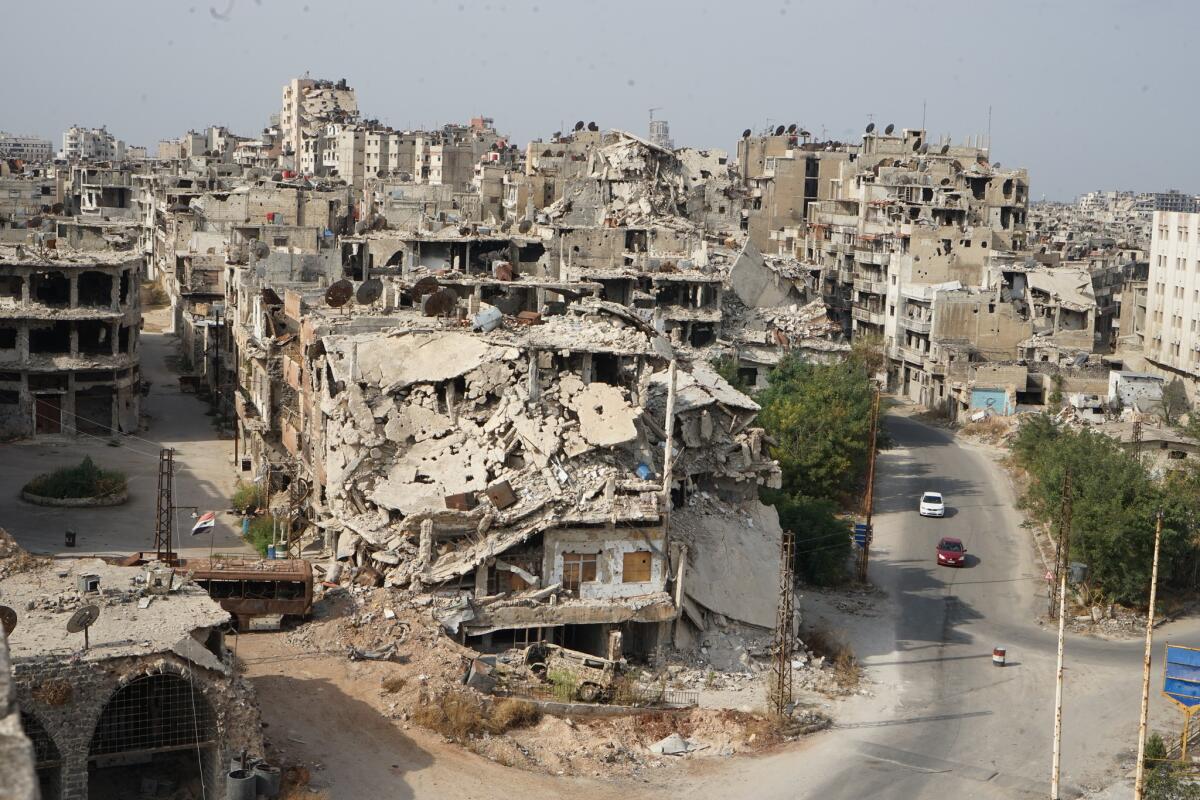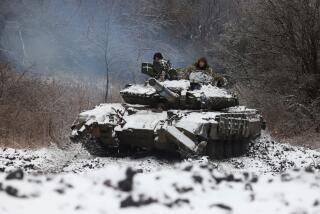Editorial: Don’t let the Syrian talks collapse

Some of the destroyed buildings in a neighborhood of the Old City of Homs, Syria, in November.
After almost five years of civil war in Syria, a three-week postponement of United Nations negotiations to end the conflict might seem like a minor setback. Staffan de Mistura, the U.N. special envoy for Syria, said on Wednesday that what he called a “temporary pause” in the talks that had begun just five days earlier “is not the end and it is not the failure of the talks.”
But the causes of the delay — continued disagreement over who will represent the opposition to President Bashar Assad and a demand by rebels that Syrian government forces and Russia end attacks on their positions — are not procedural quibbles. If they aren’t addressed quickly there could be a collapse of the diplomatic process, more bloodshed and a further exodus of refugees from a country that already seen more than 4 million people seek a haven outside its borders. To date, an estimated 250,000 people have been killed in the Syrian conflict.
Join the conversation on Facebook >>
Although the current diplomatic initiative was launched by a diverse group of countries, including allies of Assad and patrons of the opposition groups, its survival might well depend on whether the U.S. and Russia can reach what would essentially be a side deal. Secretary of State John F. Kerry has been in urgent contact with his Russian counterpart, but so far has failed to persuade Russia to end or ease its air assault on non-Islamic State targets. Russia seems determined to help the Syrian army recapture as much territory as possible in order to maximize Assad’s position at the talks — but instead, the effect could be to prevent those talks from taking place at all.
Russia’s continued airstrikes undermine its assertions that it supports the U.N. plan for a cease-fire leading to a “credible, inclusive and nonsectarian” transition government and elections within 18 months. After initially suggesting that Assad must step down, the U.S. has accepted that postponing his departure might be the price of an agreement that would make it easier to focus on defeating Islamic State in Syria. (There is, however, nothing in the U.N. resolution prohibiting Assad from seeking another term.)
The modified U.S. position is a defensible exercise in pragmatism, but Russia must also do its part by de-escalating its military activities and pressing Assad to negotiate even with opposition figures he calls terrorists.
Some of President Obama’s critics — including some of the Republicans who seek to succeed him — have faulted the administration for an insufficiently muscular policy in Syria. It’s true that the administration was caught by surprise by Russia’s military intervention and has been conflicted about how strongly to resist it as well as whether and how to aid opposition groups. But Obama is right to see a negotiated political solution as the best way to end the death, the deprivation, the starvation and the violence that are devastating Syria. Russia, which professes to agree, should match its actions to its words.
Follow the Opinion section on Twitter @latimesopinion and Facebook
MORE ON SYRIA
Video of a dead city: This is what Syria’s devastation looks like
U.S. pledges nearly $1 billion for Syrian refugee crisis
Each side in Syria peace talks blames the other for causing ‘temporary pause’
More to Read
A cure for the common opinion
Get thought-provoking perspectives with our weekly newsletter.
You may occasionally receive promotional content from the Los Angeles Times.






